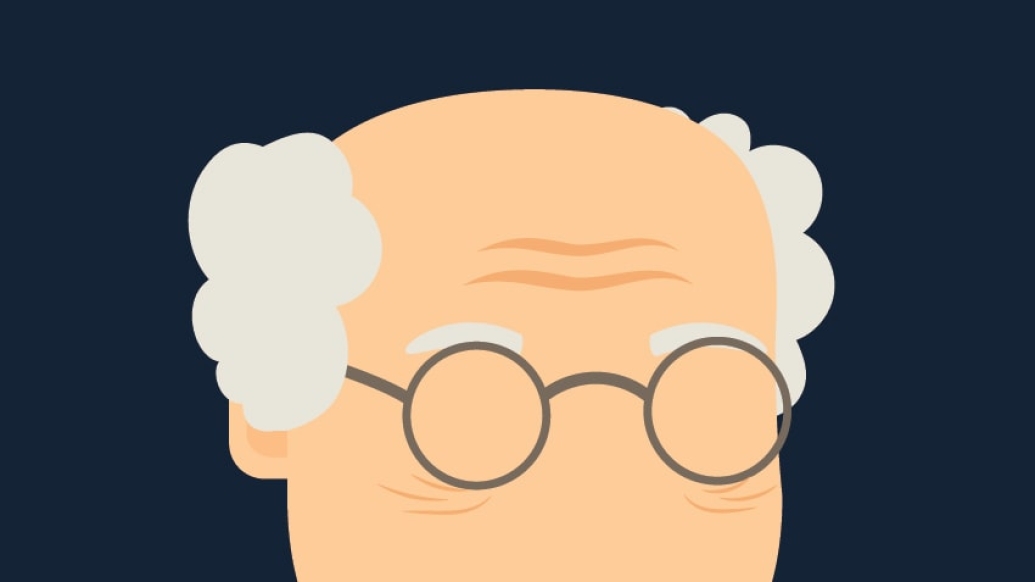The national health insurance program leaves many older Americans without adequate resources to properly maintain their sight, a new study finds.
7:00 AM
Author |

Many people who have relied on a vision plan as part of their employee benefits package during their working adult life are surprised when they turn 65 and convert to Medicare.
The reason: Medicare benefits do not include coverage for eyeglasses or contact lenses.
LISTEN UP: Add the new Michigan Medicine News Break to your Alexa-enabled device, or subscribe to our daily audio updates on iTunes, Google Play and Stitcher.
A new study by University of Michigan Kellogg Eye Center researchers shows an overwhelming 92 percent of older adults enrolled in Medicare use eyeglasses.
It's a figure that may fuel further debate about expanding the scope of services for those enrolled in the insurance program.
Medicare's lack of vision coverage puts seniors in a bind, advocates for the elderly say.
Which is why they are now pushing for a policy change on eyeglasses and other big-ticket medical needs not covered by Medicare, such as hearing aids.
The Kellogg Eye Center report published in JAMA Ophthalmology provides the most recent look at eyeglass use among Medicare beneficiaries since 2001 and helps understand the implications of a policy change.
Of the 43.9 million Medicare beneficiaries in 2015, approximately 40.5 million reported use of eyeglasses. Coverage of their care would be expensive, but not impossible, study authors say.
Vouchers that pay for a portion of the cost, targeted coverage for high-risk adults and efforts to decrease the cost are possible approaches.
And the investment may produce other benefits.
"In the long run, the cost could potentially be offset by reduction in falls, depression and cognitive decline — the kinds of health problems and injuries that can result from uncorrected vision," says former Kellogg ophthalmologist Brian Stagg, M.D., a fellow at Duke Eye Center who performed the study as a health services researcher at U-M's Institute for Healthcare Policy & Innovation.
Services expanding, still limited
Eye care becomes more important as we grow older. Not only does vision tend to change, but the likelihood of developing sight-threatening eye conditions or diseases increases as well.
Medicare is starting to approve more procedures and preventive care, such as annual diabetic eye exams and glaucoma screenings, for some patients.
MORE FROM THE LAB: Subscribe to our weekly newsletter
However, it may not cover exams when the patient's chief complaint is trouble reading a restaurant menu or needing a basic vision exam.
Medicare only covers basic frames and lenses directly following cataract surgery and only once per lifetime.
For the analysis, researchers examined data from the National Health and Aging Trends Study, and found eyeglass use varied by age, race and income.
The oldest Medicare patients over age 80 were less likely to report eyeglass use, as were blacks. The less money a Medicare beneficiary earned, the less likely he or she was to report using eyeglasses.
Authors caution that the results should be interpreted as prevalence of self-reported eyeglass use and not how many older adults have trouble seeing, a condition called refractive error.
The study shows a large portion of older adults use eyeglasses for a natural loss of near vision as the lens in the eye becomes more rigid and loses its focusing power.
SEE ALSO: A New Effort to Boost Glaucoma Medication Adherence
For a time, holding reading material farther away from the eye can compensate for the gradual decline in focusing ability. But eventually adults will need reading glasses, progressive lenses or multifocal contact lenses. Millions of older adults also need help for distance vision.
In either case, making efforts to accommodate those in need is critical.
"Maximizing visual acuity is vital for the health of older adults because of the strong association between visual impairment and quality of life," says Kellogg ophthalmologist and study co-author Joshua Ehrlich, M.D., MPH.

Explore a variety of health care news & stories by visiting the Health Lab home page for more articles.

Department of Communication at Michigan Medicine
Want top health & research news weekly? Sign up for Health Lab’s newsletters today!





